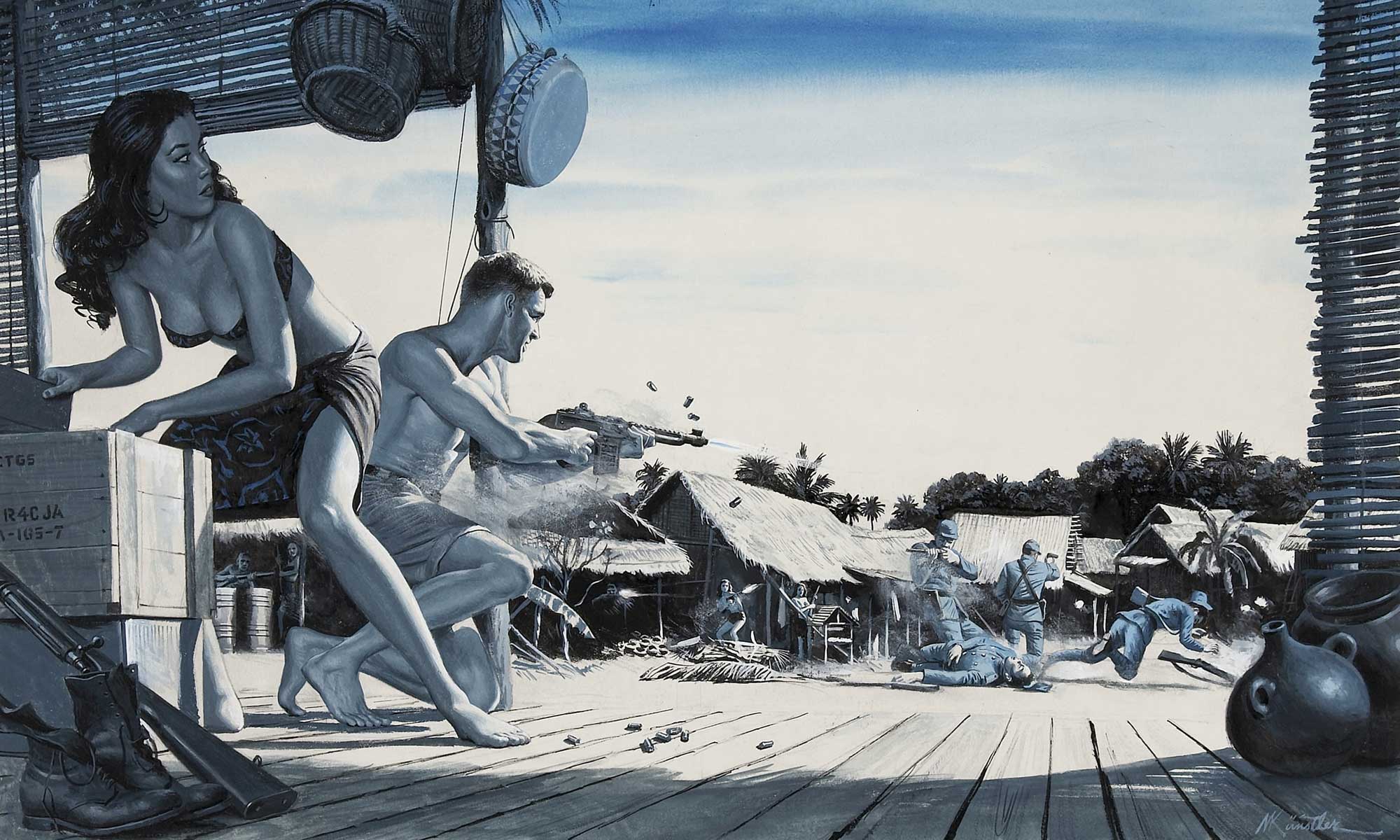I saw this when it originally aired on PBS a few years ago and it’s still worth a look.

Tales of True Adventure for Rugged Men Not Unlike Yourself

Tales of True Adventure for Rugged Men Not Unlike Yourself
I saw this when it originally aired on PBS a few years ago and it’s still worth a look.
I’m flattered you think I might grasp this. To my limited brain, it’s excellent!
Nicely presented by a non-threatening composer, in an impressive array of settings where he might at any time nonchalantly launch into exposition. Who put that keyboard right next to him on a sidewalk? How convenient.
I wasn’t aware that they had saved Western classical music from the atonal avant garde boogiepersons: Good job, Beatles!
This video sent me chasing Bach. I will clearly be learning in spite of myself.
Did it seem abridged to anyone else? I was getting ready for the take on the White Album and Abbey Road – rich musical veins, one might think – but then it just ended.
I can haz moar Beetls?
Yeah, the mention of atonal classical composition seems a little out of left field. Popular music was doing just fine before The Beatles came along.
He’s good on specific technical analysis, but his big statements are half-baked. The Beatles saved western music from atonality? If anything, the opposite is true. They made the world safer for it by incorporating it. When Sgt. Pepper came out I was nine, so I’d likely attended a dozen or so symphony concerts in Germany; but the first time I ever heard an orchestra playing atonally was in the middle and end sections of “A Day In the Life.” From that and their other forays into atonality, I was far more open to composers such as Schoenberg and Stockhausen when I encountered them later. If it weren’t for the Beatles, all atonal, experimental music would have remained in universities and occasionally in the classical concert halls of major cities. Which means an extreme minority of people would have heard it.
In other words, if even I, who had been to some symphonies, first heard atonal music from the Beatles, what about Clem Burford down in Senatobia, MS? When he heard “Day In the Life” on the radio, did he think “Ah, Arnold Schoenberg”? Earlier, when he heard “Strawberry Fields,” did he think “Ah, tape manipulation…they’ve been taking in Stockhausen”? Hell no, he thought “what the fuck is THAT?” He and millions of others would never have been exposed to such sounds otherwise. Most probably hated it, but some liked it. So the Beatles were spreading the avant garde, not fighting it.
The Beatles didn’t save music from atonalism because pure atonalism would never have made popular headway regardless, and unpopular forms die on their own. He acts as if tonality had been defeated in the classical world. That was true in universities, arts foundations, etc., places where advanced composers were shielded from popular tastes. But older, tonal music (classical, romantic, some baroque) still dominated concert halls, where patrons could vote with their feet and boos (which many did). Newer atonal music was force-fed to concert-goers here and there, and they hated it. No orchestra could have stayed in business playing it. So typically, if an orchestra played an atonal piece at all, they’d play only one followed by the Beethoven, Schubert or Mozart people wanted to hear. Atonalism was the aesthetic of a tiny niche of extreme but influential snobs. But even then there were tonal composers such as Shostakovich and Britten who, although somewhat looked down upon by the cognoscenti, were played far more often than the atonalists.
The law of supply and demand, not the Beatles, killed off atonalism. There was plenty of supply and no demand.
Then there seems to be the assumption that all pop music was tub thumping before the Beatles. As Makerbot pointed out, popular music was doing just fine. For those needing more sophistication than rock & roll, there was jazz, traditional pop, showtunes, etc. It’s great that the Beatles could incorporate them and expand rock, but let’s not pretend the world went from black and white to color.
But I enjoyed this overall, so thanks for posting. Monkeystador, I’m also uncertain why he didn’t make it at least to the White Album, especially since John delved even further into the avant garde, having taken up with one wacky Japanese artist. And you can find many more traditional classical influences there and on Abbey Road, especially those Moonlight Sonata arpeggios in “Because.” I guess he was alotted a certain time and had to pick and choose. I also wish he would have presented examples from recordings rather than singing them himself.